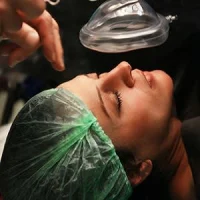Dr. Edward Litton, an intensive care specialist and researcher at Royal Perth Hospital, talked about sleep disturbance in the ICU at the 39th International Symposium on Intensive Care and Emergency Medicine.
Dr. Litton, who has led several observational and interventional studies on sleep in the ICU, highlighted that sleep deprivation is harmful and ubiquitous for patients in the ICU. However, in order to address this issue, it is first important to recognise it as a problem.
He explained that it might be possible that sleep deprivation in ICU patients has been neglected because ICU workers are so used to being sleep deprived that it has become a normal part of their lives. It might be that these workers are ignoring the evidence of the association between shift work and life expectancy.
Dr. Litton pointed out that there is no single intervention that will fix this problem. There has to be a culture change, and there is a need to recognise that sleep deprivation is an important and modifiable problem in the ICU. It is also important to measure it because if you do that, improving it becomes a more tangible goal. He explained that there are several pragmatic approaches that could help.
Dr. Litton, with his group, has measured nocturnal noise levels, looking at sources of noise within an Australian tertiary ICU and their variability studied the use of earplugs, conducted a randomised controlled trial into the use of earplugs at a large, private hospital in Perth and has compared sound levels in ICUs across Australia and New Zealand. He points out that the best way to address sleep disturbance in the ICU is by exploring and understanding it at an ICU-level rather than an individual patient level. The staff has to be involved, and there should be a willingness to embed sustainable changes. This is especially true for the nursing staff since they are around the patients 24/7 and they are the ones who need to balance competing interests as well as recognise the value of uninterrupted sleep.
Dr. Litton also highlighted that there is a need for new sleep studies with novel trial designs; studies which would incorporate best practice behavioural science and will also be able to fill the gaps in research that still exist. "I think we need a far greater mechanistic understanding of what disrupts sleep in critical illness and the physiological signals that can be used to enhance sleep quality and quantity," says Dr. Litton. Even the simplest of interventions need definitive studies so that it becomes clear what role they could potentially play in reducing noise in the ICU and improving sleep.
Overall, Dr. Litton emphasised that emergency critical care clinicians need to think about sleep and sleep deprivation. They need to ask themselves: what is the optimal restorative state for this patient, over the next minute, hour or day? They have to understand that sleep is important and that maximising the quantity and quality of sleep for patients in the ICU is an important goal.
Source: ISICEM 2019
Image Credit: ISICEM 2019
Latest Articles
ICU, intensive care, sleep in the ICU, #ISICEM19, #ISICEM19 Brussels, Edward Litton
Dr. Edward Litton, an intensive care specialist and researcher at Royal Perth Hospital, talked about sleep disturbance in the ICU at the 39th International Symposium on Intensive Care and Emergency Medicine.










